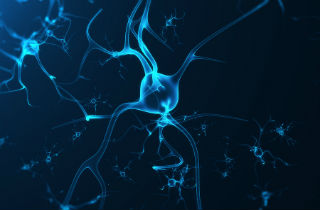What is dopamine?
Dopamine is a neurotransmitter. It is a chemical that transmits nerve impulses (or electrical signals) across the gaps between nerve cells. In this way, dopamine carries information bewteen nerve cells.
How does dopamine affect the brain?
Dopamine has many functions. Dopamine plays a role in how we generate motivation or how we process punishment and reward. Dopamine levels can alter mood, attention, working memory, and learning processes. Not only does dopamine affect our behavior and cognition but it can regulate our voluntary movement as well.
Researchers are learning more and more about how the brain works. But there is one center of the brain called the mesolimbic pathway which is particularly sensitive to dopamine. The mesolimbic pathway is called the “reward center” of the brain because brain it tries to regulate and control behavior by inducing pleasurable effects. This neurological reward system is part of what makes reinforcement possible.
Dopamine and addiction
Because researchers have shown the mesolimbic pathway to be associated with feelings of reward and desire…when you add drugs or alcohol to the mix, the system of reward and desire becomes even stronger. When chemical substances, drugs and alcohol stimulate the reward circuit of the brain, it registers the experience. Rewarding experiences trigger dopamine, telling the brain “do it again.” What makes addiction recovery difficult is that when a person takes drugs for a longer period of thime, they change the chemical balance of the brain, and create lasting memories that link drug use to pleasure and reward.
New research on dopamine and addiction
The university of Michigan has published results of a study they did with dopamine and rats. They found that drug prone rats got a jolt of happiness from a lever (associated with food reward), while the food oriented rats did not.
Think of it this way, Shelly B. Flagel, Ph.D., a research investigator at the U-M Medical School’s Molecular and Behavioral Neuroscience Institute says: Some people will see a sign for an ice cream shop and for them it’s simply that, an indicator that ice cream is available nearby. But other people will have a stronger reaction to the sign the tantalizing association between the sign and ice cream is so powerful, they can already taste the treat and often hurry to buy some.
These results seem to be even more evidence of the addiction disease model. In other words, we addicts (the rats) continue to desire the lever (whatever trigger or association reminds us of our drug of choice), even when the food reward (drug of choice) is removed.
Did dopamine cause my relapse?
Some of us just might be more “Wired” to get a little high even from thinking about people, places and things that we associate with getting high. Scientists hope to figure out why some people (addicts) are more strongly motivated by environmental cues and at an increased risk for compulsive behavior or addiction relapse. But at least it’s a start. Thanks, U of M for helping us understand the science of addiction just a little bit more.
So, did dopamine do it? Well, it just goes to show you how ON TOP OF YOUR GAME you need to be in terms of recovery. What do you do to be sure that environmental cues don’t get the best of you? What life changes can you recommend to other addicts? Share please!!!









Related Posts